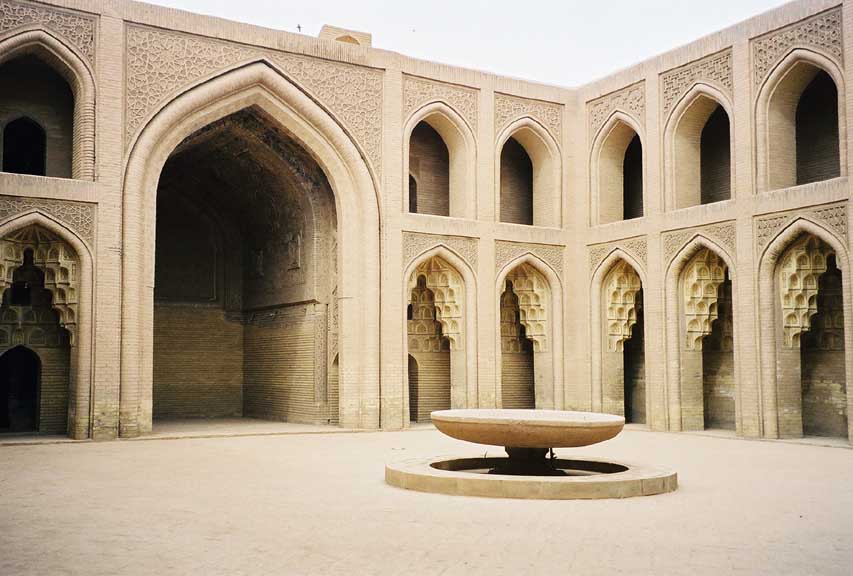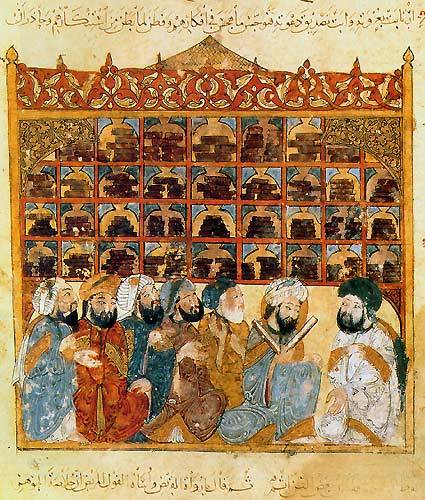The House of Wisdom was a library translation institute and school established in Baghdad, Iraq in 810; or otherwise known as the Islamic Golden Age. It was originally created to translated Greek and India mathematics and astronomy into the Arabic language and preserved and modified the translations. By the ninth century it was the largest repository of books in the world. The House of Wisdom was founded by a man named Caliph Harun al-Rashid and was later taken over by his son al-Ma'mun. During the reign of al-Ma'mun the House of Wisdom became an unrivaled center expanding not just for the study of mathematics and astronomy but also for the study of humanities and for the sciences in medieval Islam, including medicine, alchemy and chemistry, zoology and geography and cartography.

The House of Wisdom wasn't just a place for translations but also a place where many well known scholars from all over the world came to share information and ideas. These discussions and further research lead to many important original contributions to the mathematics field which were persevered and researched all possible because of the House of Wisdom. Without these scholars coming together when and how they did, we do not know when the work these scholars did would have come about. Their work has shaped the way we see and do mathematics today.
For example, Persian mathematician Muhammad Al-Khwarizmi most important contribution was his strong advocacy of the Hindu numerical system (0-9) which he realized would revolutionize Islamic mathematics and later western mathematics. Muhammad Al-Khwarizmi also made great contributions to algebra which created "a powerful abstract mathematical language still used across the world today." Without his work we wouldn't be using the number system we know today or solving algebraic expressions how we are today.
Al-Karaji, who was a 10th century Persian mathematician, "was the first to use the method of proof by mathematical induction to prove his results, by proving that the first statement in an infinite sequence of statements is true, and then proving that, if any one statement in the sequence is true, then so it the next one." He introduced and used the method of proof by mathematical induction which is still being used everyday by mathematicians and educators to prove mathematical concepts.
Nasir Al-Din Al-Tusi was a 13th Century Persian astonomer, scientist, and mathematician who was the first to treat trigonometry as a separate mathematical discipline, different from others. Without his contribution we might not teach trigonometry separate and people would probably hate mathematics even more if trigonometry was lumped in with algebra.

Brilliant minds came together in the House of Wisdom which further expanded and preserved the mathematics field. Without these scholars working together when they did, mathematics wouldn't consist of how we know and see it today. The House of Wisdom was a place for researching, developing, and preserving mathematics in books which still has great influence over us today. Imagine how different math could be? Would we be using roman numerals instead of numbers? Would trigonometry be taught with algebra? Unfortunately we will never know. We just have to accept that the world of mathematics would not be as we know it today without the great works from the House of Wisdom.
References:
http://www.storyofmathematics.com/islamic.html
http://en.wikipedia.org/wiki/House_of_Wisdom

